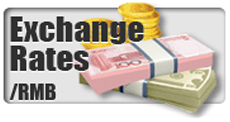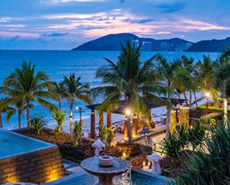European market demand steady, magnesium ingot price would keep firm in the first half of 2019
----Interview with Wang Shaowen
Marketing Director
Hoesch Metallurgie GmbH
Hoesch Metallurgie GmbH and its subsidiary (Hoesch Metals and Alloys GmbH) provide all kinds of metals to steel mills and aluminum alloy plants. The company has a history of purchasing various metals and alloys from China, such as magnesium ingot, magnesium alloy, silicon metal, electrolytic manganese metal, titanium sponge, chromium metal, etc.
Asian Metal: Thanks for taking our interview, Mr. Wang. Please give a brief introduction about the latest development of your company?
Mr. Wang: Thanks, I am glad to have the opportunity to be interviewed by Asian Metal. Hoesch is one of the biggest trading company in Europe, and we provide all kinds of minor metals to steel mills and aluminum alloy manufactures, including magnesium metal, silicon metal, manganese, sponge titanium, sponge zirconium and so on.
Asian Metal: As a large trading company in Europe, what's about your annual trading volume of magnesium ingot and magnesium alloy respectively? In addition, how about the market demand in Europe? Up till now in 2018, what's the difference for your trading volume in this year and last year and why?
Mr. Wang: Averagely, our annual trading volume of magnesium ingot is 15,000t and 2,000t of magnesium alloy.
On the whole, the demand in European market is stable, and end-users only adjust their procurement volume in line with prices. As for us, our trading volume of 2018 decreases by around 8% against last year.
The reasons are as followings: firstly, mainstream Chinese prices of magnesium ingot move up to RMB18,000-18,300/t EXW D/P at present, up by RMB4,000/t against early this year. On account of the price surge, market transactions in the foreign market slow down and consumers hold light stocks on hand. Secondly, due to the gloomy economy, my regular consumers in aluminum industry are divided into multiple times to purchase the raw material. Thirdly, our business environment is difficult and the market is competitive. Fourthly, as prices continue to rise, problems from China's traders increase, we reduce procurement volume to avoid market risks accordingly.
Asian Metal: What's your regular stock of magnesium ingot? Is there any adjustment this year? In addition, in your opinion, how is the inventory held by foreign customers? Do you consider increasing the inventory in the late Q4?
Mr. Wang: Normally, our inventory in Rotterdam warehouse is around 1,000t. Due to the continuous price rising this year, customers' purchasing enthusiasm is not high, so we reduce the average inventory to about 800t.
Due to the coming Christmas holiday in December and the New Year holiday in January, we will increase the inventory in November. At present, our inventory is at 1,800t on hand. Commenting on the end-users, they will increase their stock in the Q4 to cope with the Christmas, Chinese New Year and New Year holiday. Therefore, the European market transactions are active in November.
Asian Metal: In 2018, environmental protection inspection has been a major factor affecting the supply of magnesium. Although there is no "imposing uniformity on" phenomenon in magnesium industry, there is little change in the production of magnesium plants. However, strict policies become the bottleneck problem to restrict the resumption for some suspended plants. Do you think the environmental protection will continue to restrict the supply of magnesium ingot?
Mr. Wang: Since the "imposing uniformity on" impact of environmental protection on the ferrosilicon industry in the Q4 of 2017, the price of ferrosilicon has skyrocketed. Owing to the rising production cost but low conculued prices, manufacturers of magnesium ingots have suffered severe cost inversion and suffered heavy losses. Therefore, from the Q4 of 2017, some magnesium plants in Shanxi, Ningxia, Inner Mongolia and Xinjiang stopped their production. Some Shaanxi manufacturers decreased the production volume. Up till 2018, even though environmental policy didn't appear "one size fits all", but production enterprises were hard to enlarge the operation rate and suspended plants were hard to resume. The supply of magnesium ingot was tight and the output even decreased by 10% in 2018 against last year. Therefore, prices of magnesium ingot kept increasing in the past months of 2018.
From the perspective of Chinese policy, environmental protection will be a theme for a long time in China. As purchasers, we hope that the supply could increase. However, the supply would keep tight and prices are hard to go down in the coming months.
Asian Metal: Looking at the price trend of magnesium products in 2018, it went straight up. During this period, how did your company deal with the market risk and complete long order orders?
Mr. Wang: We continue to deal with market setbacks, which are not new. Commenting on the situation in 2018, even though the market completion and risks were fierce, we could handle them. Normally, we sign monthly, quarterly, semi-annual and annual orders with end customers, most of my suppliers performed well in the process of order execution. Nevertheless, some of them refused to deliver the material, and we suffered some loss. Fortunately, we have sufficient funds to continue to purchase and finalize end-users' deals.
Asian Metal: What is your forecast for the price trend of magnesium in the remainder of Q4?
Mr. Wang: During the Q4 of 2017, Chinese magnesium industry experienced shutdown, restructuring and adjustments. In 2018, market conditions were also unfavorable as Chinese magnesium plants had to comply with highly strict requirements on its environmental performance and accordingly magnesium producers have been experiencing great difficulty in trying to resume production. The magnesium market turned around from supply surplus in previous years to supply shortage, leading to magnesium prices going up all the way.
Normally, foreign buyers would increase their stocks during this period and market transactions would become active. Meanwhile, the supply would keep tight. Therefore, mainstream prices would hover at USD2,550-2,580/t CIF Rotterdam, and buying activities would become inactive higher than USD2,580/t CIF. Meanwhile, prices in China would keep firm at RMB17,800-18,100/t EXW D/P, almost little change during this period.
Asian Metal: How about your purchase situation and payment state in China? In addition, the current supply is mainly to conclude the deals of the Q1 and Q2 of 2019. According to your orders, what is the market demand in Europe?
Mr. Wang: Generally speaking, when we place an order to the supplier, the other party needs 2 weeks to prepare the goods. After that, it will take 6-7 weeks from the source to Rotterdam. That is, nearly nine weeks to take between placing orders and delivering to Rotterdam warehouse. We usually finalize the payment within 5 working days. After payment, it takes about 7 weeks to Rotterdam. Then, we send the material to consumers according to orders. Meanwhile, the terminal customer usually has a payment period of 60 days, 90 days and 120 days, which is extremely considering our capital strength and market forecast ability.
The current supply of goods are orders for the Q1 and Q2 of 2019. As the supply is hard to increase in the short term, mainstream prices would hover at USD2,550-2,580/t CIF Rotterdam. We are reluctant to watch and would place orders as scheduled. As for orders, customers are still very cautious to place orders due to high prices. My orders would get fewer and decrease by about 6% in the first half of 2019 against the same period of last year.
Asian Metal: Thanks for taking our interview. Wish Hoesch better development in the future.
Mr. Wang: Thanks! Let's work together and look forward to a better tomorrow. In addition, we also expect that Asian Metal sticks to the principle of objectiveness and timeliness to serve clients with better information about the magnesium market.

















